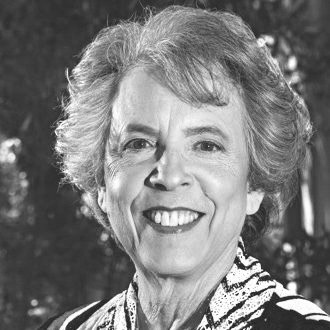“Boomers [people born between 1946 and 1964] are the first generation in human history … to reasonably anticipate living well and wholesomely into their 80s and 90s, if not beyond,” sociologist Steven Cohen writes. “But not only are Jews (as others) living longer, they are living in an age of meaning-seeking, with the interest and wherewithal to make living a life of meaning an ultimate and reasonably obtainable objective for any point in their lives.”
I just turned 62; I’m a boomer. My grandparents experienced their lifetimes in three major life stages: childhood, midlife and old age. (The idea of adolescence as a distinct period between childhood and adulthood didn’t develop until early in the last century.) For my parents, there was childhood, adolescence, adulthood and then retirement (to Florida) at 65 and the beginning of old age. For me, it will be different.
There is a lot being written about a new life stage between maturity and old age. Sara Lawrence-Lightfoot, in her book “The Third Chapter: Passion, Risk, and Adventure in the 25 Years After 50,” writes: “The arc of life and learning is continually being expanded and redefined. … [N]ot only are people living longer and thus facing interesting questions related to how to compose their lives, but also that what I am calling the Third Chapter represents a significant and new developmental period in our culture. … This is a chapter in life, then, when the traditional norms, rules and rituals of our careers seem less encompassing and restrictive; when many women and men seem to be embracing new challenges and searching for greater meaning in life.”
One of the places that Jewish boomers are going in search of this “greater meaning in life” is the synagogue. Along with families with young children, they are the next largest group coming to synagogue, whether or not they are actually joining. Boomers are our adult learners; they populate many of our worship services and they come to their rabbis and synagogues for help dealing with their aging parents. At the same time that they are responsible for elderly parents, many still have older children at home or who have recently returned because of the difficulties of this economy. How can they navigate these competing claims? What does it really mean to honor one’s mother and father? How does one parent an adult child? What ought to be the role of grandparents?
We boomers are in the process of composing and reinventing our lives as we realize that time means something different when there is less of it ahead than behind. What will be our legacy? How can we continue to create lives of meaning and purpose when we can no longer define ourselves primarily in terms of our careers or even our families? What would constitute meaningful volunteer work and a chance to give back? Where might there be the opportunity to mentor a younger generation, to share professional and life wisdom? What kind of travel offers the opportunity to do service as well as experience a different culture? What kinds of intentional communities might offer attractive alternatives to living alone in our homes? And what kinds of spiritual resources does our tradition have to offer us as we write this new chapter of our lives?
It turns out that Judaism has a great deal to teach about aging wisely, particularly about the spiritual practices of forgiveness and gratitude that seem to be so central to the work of this stage of our lives. Judaism teaches that God is present in every moment; we acknowledge God’s presence by blessing, ritual and ceremony. Traditional Jewish life cycle rituals of brit milah, bar mitzvah, marriage, and illness and death might have been sufficient for my grandfather’s life, but they don’t acknowledge the reality of my life experience. We first learned this in the early ’70s when the Jewish feminist movement challenged us to think about the Torah of our lives and acknowledge the divinity present in all of our experiences. While one could certainly argue that there are many other rituals that our tradition offers connected to other moments of transition, such as affixing a mezuzah when moving into a new home or expressing gratitude for surviving an illness (Birkhat ha-Gomel), the claim that all of our experiences are Jewish experiences and therefore deserve to be acknowledged through ritual suggests that we turn to creating new rituals to help us think about this new chapter as well.
What are those moments? They include retirement, moving out of the homes where we raised our children, becoming a grandparent, giving up our cars, major birthdays, reaffirmation of marriage vows, and even choosing whether to begin a new relationship when a beloved spouse no longer recognizes us because of advanced Alzheimer’s.
As USC anthropologist Barbara Myerhoff taught, there is danger in creating new ritual. It needs to feel authentic and convincing by somehow echoing the power of more familiar ritual and linking us to the cosmic narrative of our people reflected in Torah. We need to touch not only the Torah of our own lives; these new rituals must also connect us to the Torah of tradition.
The norms, rules and rituals of this stage haven’t yet been written; we are writing them together as we compose this next chapter of our lives enriched by the insights of Jewish tradition. I look forward to a challenging and engaging conversation.























 More news and opinions than at a Shabbat dinner, right in your inbox.
More news and opinions than at a Shabbat dinner, right in your inbox.